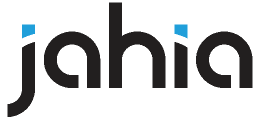
Starting with version 8.0.3.0, Jahia comes with a provisioning API to facilitate the orchestration of Jahia environments.
Its main objective is to automate the startup of complex environment starting from published Jahia releases. When using the provisioning API, Jahia will be able to reach "production" without requiring manual actions nor direct filesystem access to the Jahia environment.
Primariraly aimed at containerized environments (i.e. Docker) this API is not tied to Docker and is also available on local Jahia installation.
Each folder in this repository contains all the necessary elements to start a Jahia environment following different use cases.
These examples serve as proof-of-principles and are not meant at being used "as-is" for production environment.
| Tutorial | Description |
|---|---|
| 00-start-jahia | Start Jahia Enterprise with Docker |
| 01-personal-api-tokens | With a local DerbyBD database, install the Personal API Tokens module and create a token |
| 02-digitall-mariadb | With a MariaDB database, install Digitall |
| 03-augmented-search | Add an Elasticsearch single-node cluster, install and configure Augmented-Search for Digitall |
| 04-jexperience | Install and configure jExperience |
Reminder: Jahia default root credentials are root / root1234.
In order to follow these tutorials you will need the Docker Engine installed on your machine.
These tutorials expose set ports (such as 8080), you will need to make sure these do not conflict with other resources you might have running on your machine.
Note: Please ensure that your Docker installation allows allocating up to 4GB of memory to a container. For MacOS users, in Docker go to Preferences>Advanced and set the memory limit to 4GB or more instead of the default 2GB.
Ready to get started? If you're new to Jahia with Docker, you should begin with the first tutorial.
The provisioning API is documented on the Academy here
More details about the Maven protocol here